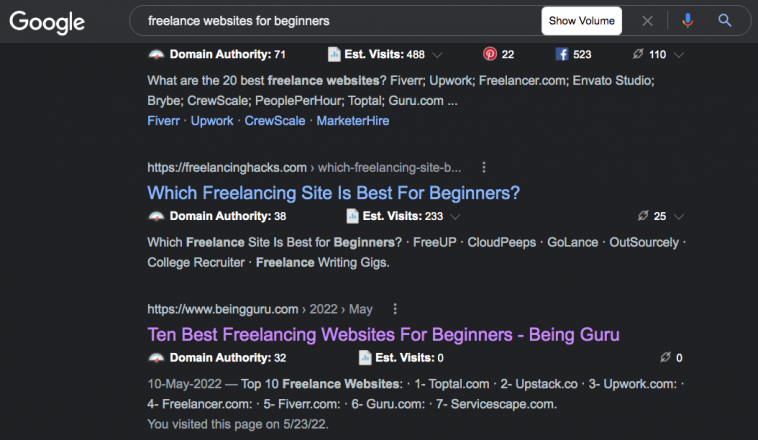Finding correct SEO tips and getting ranked in the top 10 search results for your business-related keywords on Google is a dream of every website owner. If you own a blog, a portfolio website, or an e-commerce store. I’ve carefully crafted 8 SEO keys (search engine optimization) that will help you not only rank well on Google for your keywords but you can also push all the way to the first page of ranking.
Everyone knows huge traffic comes from the 1st page of search results, nobody bothers to go to the second page or beyond.
In order to rank in the top 10 search results, the first thing you have to keep in your mind is the content. The content has to be created for your users to gain information. The keywords in your content should be carefully assessed by keeping users and search engines in mind.
After the keyword analysis and writing the content, here’s what you need to keep in mind when you are about to publish your content on the internet.
1: Try to Optimize your page titles and meta descriptions:
- Keep your post title short and appealing.
- Keep the meta description length between 180-200 characters.
- Do not repeat the title in the description.
- Do not add many keywords.
2: Structure Permanent link Properly for SEO:
- Make Urls clean and simple, and easy to understand for Google and your users.
- Avoid lengthy URLs.
- Use the right words that describe your post clearly.
Here is a simple formula:
Include your focus or main keyword in the post title, and meta description. This helps increase your SEO score.

3: Link related articles together (internal linking)
Your internal links help Google understand the control over a particular topic. For example, if you are writing about Digital Marketing, in different blog posts, you have covered SEO, sponsored blogging, or social media marketing, internal linking these articles (from one blog post to another on your website) informs Google about your tropical coverage.
Always Understand the purpose of your pages.
- Always ensure that the links are useful both for the user and very easy to understand by Google.
- Keep the user in mind. Do not make links for the only purpose of educating Google. Make sure, users benefit from your internal linking to navigate to the posts that can educate them. The bounce rate of your page matters a lot. If the bounce rate is low, it encourages Google to rank you higher for your keywords because it gives weightage to the fact that people are reading your content for a longer duration of time.
- Avoid using keywords such as click here to learn more. Keep the flow organic and link a keyword in the sentence. Notice the link in organic rather than asking users for a direct call to action.
4: Try to use H1, H2, and H3 more naturally in your content.
- Use H1 tags for the title of your post.
- Use H2 tags for the main headings of your post.
- Use BOLD and Italics to draw the user’s attention.
- Don’t use H2 tags for all your headings.
- Write small paragraphs, and keep the information concise.
5: Try to convert Images into WebP format:
- Use Alt Text to describe the image. Do not overstuff the keywords.
- Optimize image file size. The smaller the size of the image (in KB) the faster your website will load.
- Use tools to compress your image size. I use Adobe Photoshop.
- Convert images into WebP format to reduce file size.
6: Make the website responsive. Need for Speed:
Website speed and responsiveness is one important factors for good search engine optimization. If you want your website to rank in the top 10 search results on Google, make sure your website is hosted on fast servers and it can be viewed on all gadgets such as laptops, desktops, tablets, iPad, and smartphones.
7: Use the Yoast/AIOSEO (All in One SEO) WordPress plugins for Meta Tags:
Meta tags provide information to search engine about your page. In order to generate page title, description, and focus keyword, use Yoast or AIOSEO plugins. These WordPress plugins inform search engines about the summary of your content and how you want your page to show in search results.

8: Always remember Content is king.
Alongside all attributing factors that help you rank your content on Google, remember – content is everything. If your content is informative, it adds value to your users, they read it for a longer period of time, and the chances of your keywords ranking on Google are higher. Effective SEO is all about your content and keeping users in mind.






